References and citations
Citations
- 1 2 Hayward 1981, p. 148.
- ↑ Hayward 1981, p. 173.
- ↑ "Shipping and Freight Enterprises - Shipping Corporation of New Zealand" . Retrieved 6 April 2015.
- 1 2 "New Zealand Government Asset Sales as at 30 September 1999 - Completed Sales". New Zealand Treasury. 30 September 1999. Retrieved 8 April 2015.
- ↑ "Story: Shipping". Te Ara: The Encyclopedia of New Zealand. 13 July 2012. Retrieved 6 April 2015.
Related Research Articles
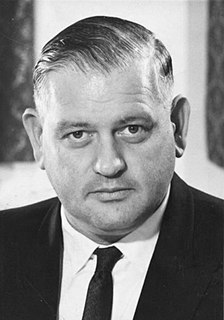
Norman Eric Kirk was a New Zealand politician who served as the 29th Prime Minister of New Zealand from 1972 until his sudden death in 1974.
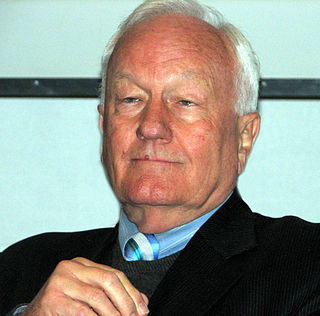
Sir Roger Owen Douglas is a retired New Zealand politician who served as a minister in two Labour governments. He became arguably best known for his prominent role in New Zealand's radical economic restructuring in the 1980s, when the Fourth Labour Government's economic policy became known as "Rogernomics".

Sir Wallace Edward Rowling, commonly known as Bill Rowling, was a New Zealand politician who was the 30th Prime Minister of New Zealand from 1974 to 1975. He held office as the parliamentary leader of the Labour Party.
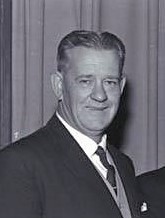
Hugh Watt was a Labour member of Parliament and the Interim Prime Minister of New Zealand between 1 and 6 September 1974, following the death of Prime Minister Norman Kirk. He had been Deputy Prime Minister of New Zealand since 8 December 1972. Watt later served as High Commissioner to the United Kingdom.

The Third Labour Government of New Zealand was the government of New Zealand from 1972 to 1975. During its time in office, it carried out a wide range of reforms in areas such as overseas trade, farming, public works, energy generation, local government, health, the arts, sport and recreation, regional development, environmental protection, education, housing, and social welfare. Māori also benefited from revisions to the laws relating to land, together with a significant increase in a Māori and Island Affairs building programme. In addition, the government encouraged biculturalism and a sense of New Zealand identity. The government lasted for one term before being defeated a year after the death of its popular leader, Norman Kirk.

New Zealand Railways Corporation (NZRC) is the state-owned enterprise that owns the land beneath KiwiRail's railway network on behalf of the Crown. The Corporation has existed under a number of guises since 1982, when the old New Zealand Railways Department was corporatised followed by deregulation of the land transport sector. In 1986, the Corporation became a State-owned enterprise, required to make a profit. Huge job losses and cutbacks ensued, and the rail network, rail operations and ferry service of the Corporation were transferred to New Zealand Rail Limited in 1990. The Corporation retained ownership of the land beneath the railway network, and charged a nominal rental to New Zealand Rail, which was privatised in 1993, and renamed Tranz Rail in 1995. In 2004, following a deal with Tranz Rail's new owners Toll NZ, the Corporation took over responsibility for maintaining and upgrading the rail network once more, trading under the name ONTRACK. Negotiations with Toll over track access charges concluded after four years with no agreement reached, so the government purchased the entire rail and ferry operations, naming the service KiwiRail. ONTRACK's railway infrastructure and employees were then transferred to KiwiRail in 2008, which itself was initially a subsidiary of the Corporation. On 31 December 2012, the Corporation once again became the landowner.
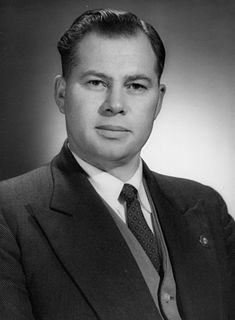
Ronald Leslie Bailey was a New Zealand politician of the Labour Party.

Michael Aynsley Connelly, commonly known as Mick Connelly, was a New Zealand politician of the Labour Party, and a Cabinet Minister from 1972 to 1975 in the Third Labour Government.

Norman Vazey Douglas was a New Zealand trade unionist and left-wing politician. He joined the New Zealand Labour Party in 1932, but when John A. Lee was expelled from the party in 1940, Douglas followed to join the new Democratic Labour Party. He rejoined the Labour Party in 1952 and represented the Auckland Central electorate in Parliament from 1960 until his retirement in 1975, serving time on the Opposition front bench.

Colin James Moyle is a former politician of the New Zealand Labour Party. He was a Government Minister in the Third Labour and Fourth Labour Governments. In the Fourth Labour Government he oversaw the removal of farming subsidies and the establishment of a fisheries quota system.
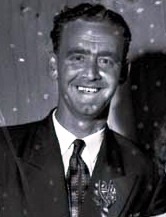
Arthur James Faulkner was a New Zealand politician of the Labour Party.
Michael Avigdor Hirschfeld was a New Zealand, multi-millionaire businessman, and was President of the New Zealand Labour Party from 1995 to 1999.

Henry Leonard James May was a New Zealand politician of the Labour Party. He was a cabinet minister from 1972 to 1975.

Roger Patrick Blundell Drayton was a New Zealand politician of the Labour Party.
DFC New Zealand Limited was a state-owned enterprise that existed from 1964 to 1991, to provide venture capital and financial advice to industry.
The 1965 New Zealand Labour Party leadership election was held on 9 December 1965 to determine the future leadership of the New Zealand Labour Party. The election was won by Lyttelton MP Norman Kirk.

It's Time was a successful political campaign run by the New Zealand Labour Party under Norman Kirk at the 1972 general election. The Labour Party promoted its initiatives with advertisements featuring the lines "It's time for a change, it's time for Labour." The campaign was ultimately successful, and marked the first time Labour had been in government since losing the 1960 election to the National Party.
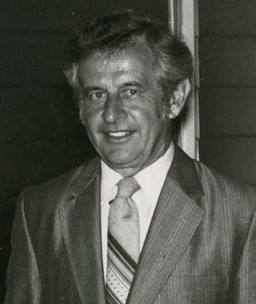
John Francis William Wybrow was a New Zealand politician and diplomat. He was the secretary of the Labour Party and later New Zealand's High Commissioner to Canada.
References
- Farquhar, I.J. (1996). Jack of All Trades, Master of None: The Shipping Corporation of New Zealand Limited 1973-1989. Wellington, NZ: New Zealand Ship & Marine Society. ISBN 0959783458.
- Hayward, Margaret (1981). Diary of the Kirk Years. Auckland: Reed Publishing. ISBN 0589013505.